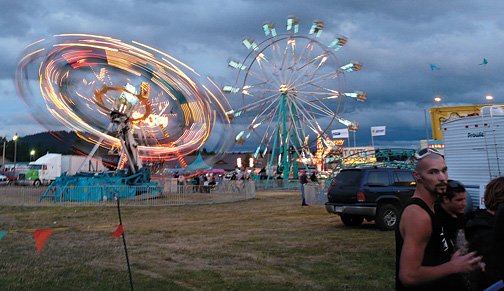When Dilip D'Souza arrived at Brown to study computer science in the early 1980s, he was, by his own admission, "a wide-eyed grad student." He loved American music and had grown up hearing his parents' stories about being graduate students in the United States a generation earlier. But he labored under some misconceptions. "For example, a lot of us Indian males tend to think that American women are all loose and they're going to jump into bed with all of us," he says with a self-deprecating chuckle. "After a while I started thinking to myself, 'Where are all those damned loose women?'"

Roadrunner: An Indian Quest in America chronicles three separate road trips D'Souza took throughout the Southeast, Southwest, and Midwest during 2007 and 2008. The book was inspired in part by Bernard-Henri Levy's book American Vertigo: Traveling America in the Footsteps of Tocqueville; after reading it, D'Souza thought to himself, "Why didn't an Indian do this?"
Wanting to ap- proach the United States with "a completely blank slate," he opted not to read Alexis de Tocqueville or William Least Heat Moon. He simply looked at a map, picked out places he thought he might like to visit and noted people he thought he might like to meet. "Then I just let the road take me where it went," he says.
The result is thirty-seven loosely connected essays, in which D'Souza uses such disparate experiences as a Harley-Davidson rally in Sturgis, South Dakota, and an Obama campaign event in Selma, Alabama, to reflect on issues of nationalism, patriotism, and vintage American cars. D'Souza is particularly preoccupied with graveyards and with memorials to wars and battles long past, and during a visit to Shiloh National Military Park, in Tennessee, he notes that the battleground's memorials honor regiments on both sides of the Civil War. He wonders whether an Indian war memorial he once visited might ever honor Pakistanis who have died in the decades-long conflict.
"Here on display is the only way patriotism makes sense to me," he writes. "Not reviled when it belongs to the 'other' guy, but celebrated for the ideal it was to him too."
In New Orleans, a church group helping rebuild houses reminds him of volunteers in India after the tsunami and cyclone. "These selfless people who came and worked there for no reason at all, just got up and said, 'I feel I want to do something for my fellow human beings.' I just cannot think of anything else that's patriotism. That's it for me."
Dilip D'Souza blogs at http://dcubed.blogspot.





